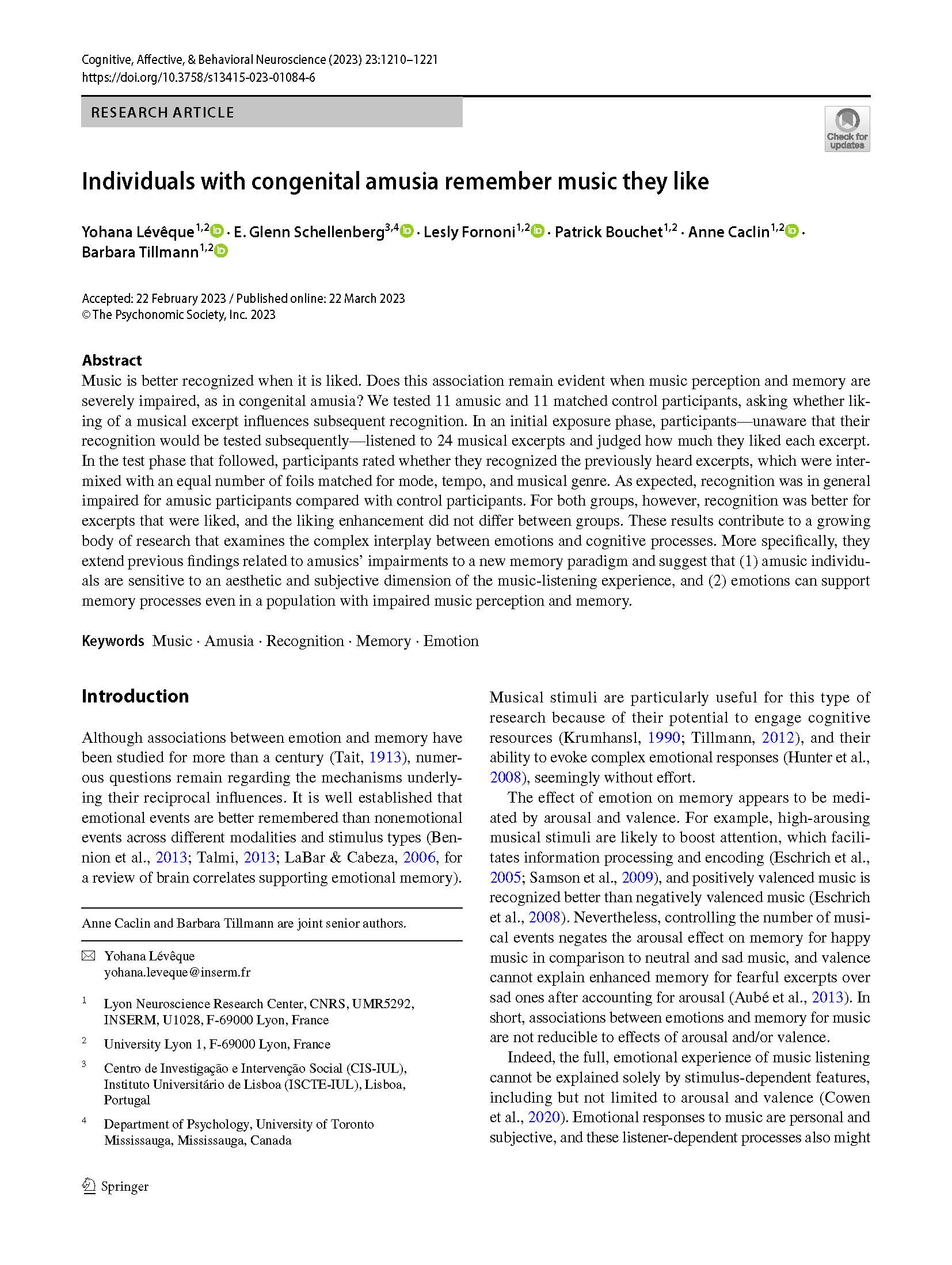Music is better recognized when it is liked. Does this association remain evident when music perception and memory are severely impaired, as in congenital amusia? We tested 11 amusic and 11 matched control participants, asking whether liking of a musical excerpt influences subsequent recognition. In an initial exposure phase, participants—unaware that their recognition would be tested subsequently listened to 24 musical excerpts and judged how much they liked each excerpt. In the test phase that followed, participants rated whether they recognized the previously heard excerpts, which were intermixed with an equal number of foils matched for mode, tempo, and musical genre. As expected, recognition was in general impaired for amusic participants compared with control participants. For both groups, however, recognition was better for excerpts that were liked, and the liking enhancement did not differ between groups. These results contribute to a growing body of research that examines the complex interplay between emotions and cognitive processes. More specifically, they extend previous findings related to amusics’ impairments to a new memory paradigm and suggest that (1) amusic individuals are sensitive to an aesthetic and subjective dimension of the music-listening experience, and (2) emotions can support memory processes even in a population with impaired music perception and memory.
Individuals with congenital amusia remember music they like
